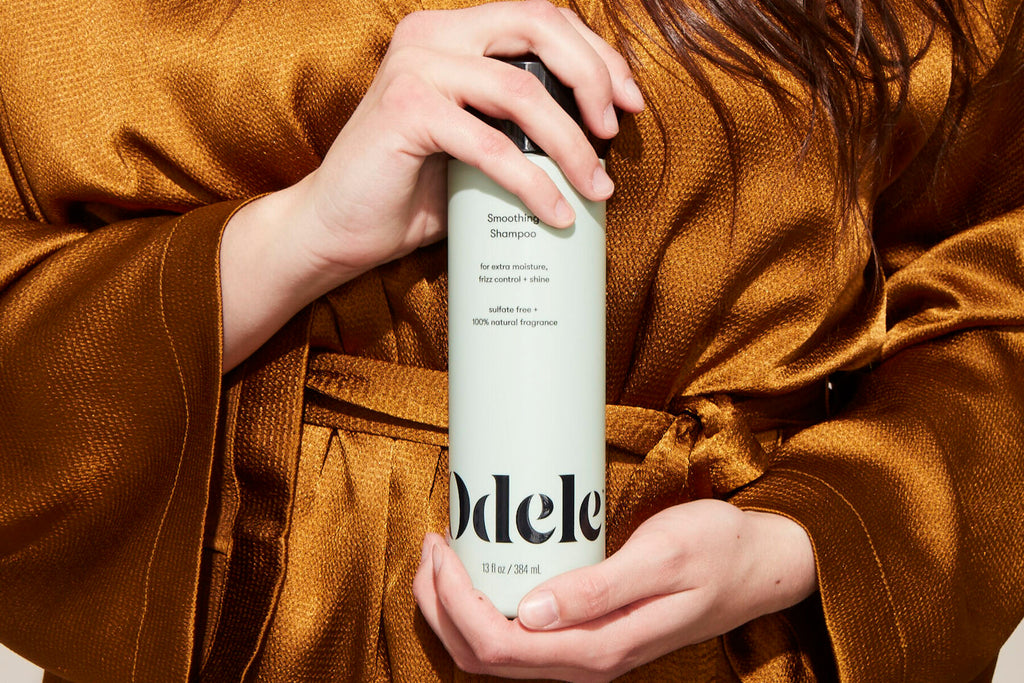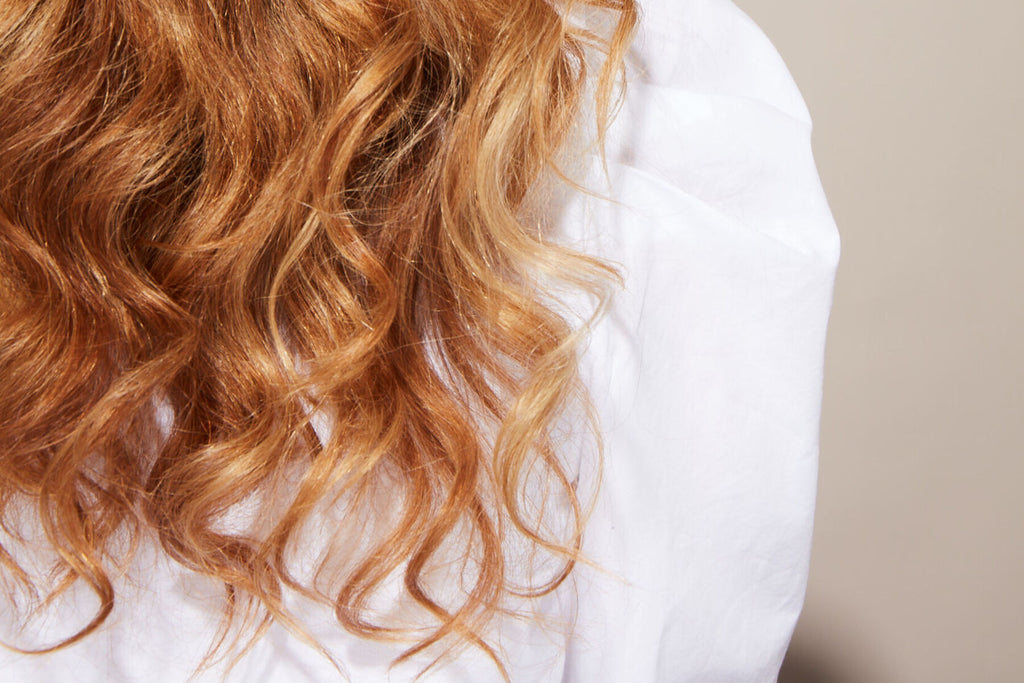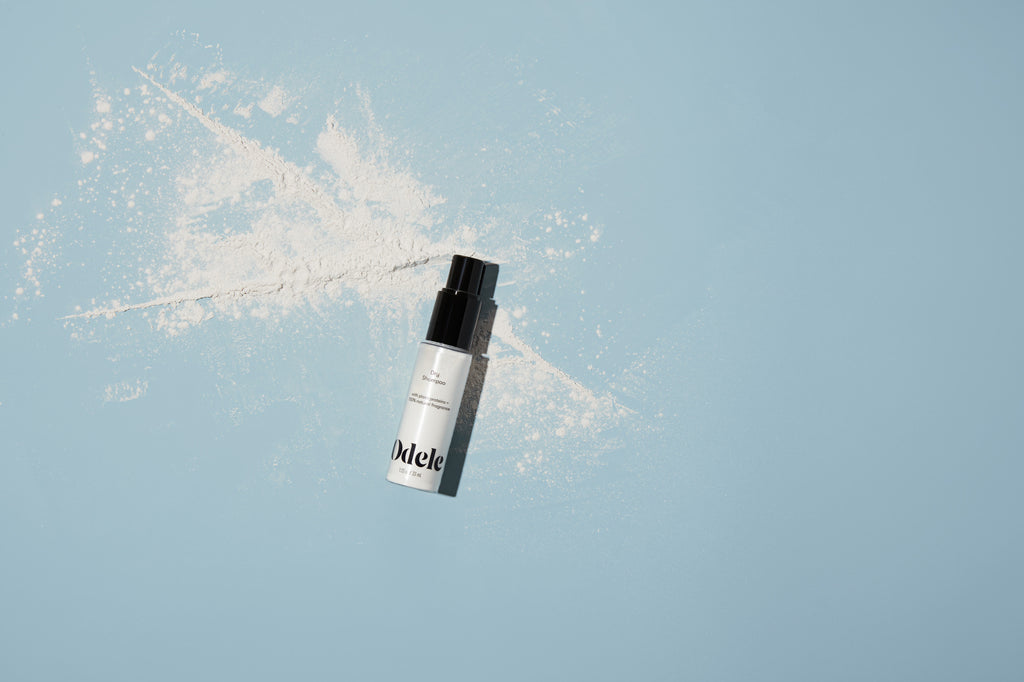Look at that glow! And that hair. Your strands can change a lot both during and after pregnancy, from varying thicknesses to new textures and maybe even new length. It’s just another thing to expect when you’re expecting, if you catch our drift.
Are all of these changes good? Well, that’s entirely up to you and your relationship to your hair. But trust us when we say that plenty have noted their pregnancy hair was the very best hair of their life. Here’s what to know about hair changes during pregnancy—and how to deal.
Why hair changes during pregnancy
The short answer? All the hormones.
During pregnancy, your estrogen and testosterone levels fluctuate like wild. Because these hormones regulate hair growth, the varying levels can cause some funky things to happen. Besides the changes in texture, dryness and thickness (to name but a few!), you might experience out-of-the-ordinary hair growth in new places, such as your arms, belly and face.
Though your hair will probably return to normal around six months after giving birth, the journey isn’t over—hormones are still changing, and thus the hair changes keep on coming.
While it can be confusing—and sometimes downright annoying—it’s important to remember that these changes are all par for the course. If your hair is behaving itself, enjoy the ride! And if it’s not? Feel free to complain away—we’re extremely sympathetic to the horrors of a bad hair day.
What to expect (and how to deal)
1. Your hair might get greasier.
Why it happens: Oily hair during pregnancy is due to the increased sebum production that can come from a (you guessed it) hormone surge. On the bright side, many report shinier hair as well.
What to do: Incorporate a Clarifying Shampoo into your routine! This detoxing product can be used once a week for an intense clean that doesn’t strip or dry your hair. Another great idea: Keep your Dry Shampoo on hand, just in case an oil-absorption mood strikes.
2. Or it may dry out.
Why it happens: Dry, brittle hair may be due to low iron, iodine and protein levels—a common side effect of pregnancy that correlates to mild anemia.
What to do: If you think you might be anemic, talk to your doctor.
Strictly speaking hair? Hydration, hydration, hydration! A hair mask is a great way to add some shine and strength back to dull, dry locks. Whereas regular conditioner focuses its hydrating magic on the surface of your strands (the cuticle layer), a hair mask penetrates below the surface all the way to the cortex, nourishing hair from the inside for longer-lasting results. Use your Moisture Mask with each wash, up to three times a week. Apply to the full lengths of your hair, concentrating on the ends, and rinse out after 10 minutes.
3. Your texture (and shade) might change.
Why it happens: Sometimes, hair can experience a complete 180 during pregnancy—curls fall flat, straight hair suddenly curls, frizz runs rampant and color is fresh—no salon visit required. Once again, this is hormone-based, with the outcome being that your hair follicle shape is actually changing. Remember when your classmate’s curls dramatically appeared in 7th grade? Turns out, it wasn’t a perm. It was hormones.
What to do: While you don’t have much say in the situation, you do have the ability to learn about your new texture and treat it right. Here’s a breakdown of hair types and how to care for them.
4. Your hair might get thicker.
Why it happens: Thick strands, full head of hair, can’t lose. While your hair isn’t actually getting thicker during pregnancy, it can certainly feel like it is. This is because an increased number of your follicles are stuck in the anagen, or growing, phase of the hair cycle. Due to this, and the corresponding less-than-normal shedding, you get to enjoy thicker-feeling, and sometimes longer, hair.
What to do: Enjoy! Here are some easy air-dry styles you can use to show off your luscious locks.
5. You might experience hair fall.
Why it happens: Nothing lasts forever. Sometimes, the sudden drop in estrogen that follows delivery will cause your strands to return to the exogen, or shedding, hair phase all at once. This can show up as excessive hair loss around three to six months after giving birth, known as postpartum telogen effluvium. You might even have some bald spots or little tufts of new hair growing back for months—the baby bangs you never asked for.
What to do: The best thing you can do when experiencing hair loss is to take care of yourself. Use products that work well for your hair type, keep your scalp clean and be kind to your strands—no excessive tugging or tight hairdos. Additionally, protect your shower drain with one of those hair catchers and clean your hair brush regularly.
6. Or something completely different.
Sometimes, nothing changes. Other times, everything! Just remember: this is all (usually) normal. If you feel like something isn’t normal, chat with your doctor.

Can I color my hair while pregnant?
While there isn’t a ton of data available about dying hair while pregnant, the American College of Obstetricians and Gynecologists says that dye is unlikely to be toxic to your fetus. Still, experts recommend waiting until after the first trimester to refresh your color.
Will these changes stick around?
Probably not! Most folks report that their pregnancy hair returned to normal around six months after giving birth, but again… things can look different for everyone. If those curls are sticking around, we can help you learn how to treat them right.
What ingredients should I stay away from?
Luckily, all Odele products are safe for pregnant or breastfeeding individuals. Furthermore, our products are made to be shared, pediatrician-tested and a perfect addition to any future kiddo’s bathtime.
That said, there are definitely ingredients to stay away from during pregnancy when it comes to hair, skin and even household products. You can read up on those rules here.











